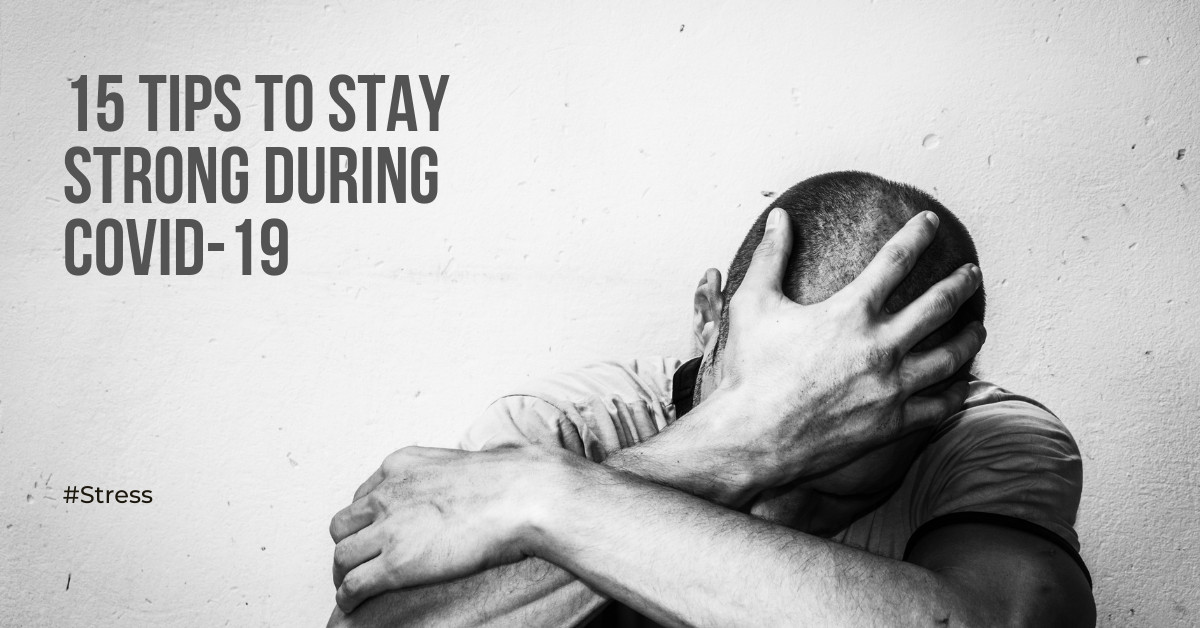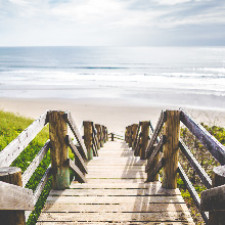15 tips to cope with stress and depression during Covid-19
José Mujica, once the poorest president in the world, spent 12 years isolated in a prison in Uruguay. Without any perspective, with little food and locked in a room without windows, he managed to endure this agonizing torture full of stress and moments of depression.
Covid-19 causes unrest and stress in many people. As much as the measures vary from country to country, many people have sometimes had to sit at home for days, weeks, or even months. The loss of income or loneliness and uncertainty about the future can cause a lot of stress. It has even led to a form of depression among some people. What can you do to prevent this?

1. Make sure you get enough exercise
Sufficient exercise is both mentally and physically healthy. This does not mean that you have to do a one-hour workout every day. A quarter of an hour of Yoga or fitness a day is enough to keep your body vital and healthy and to increase your mental resistance.
If you don't know how to do Yoga or fitness, by now there are thousands of online yoga teachers and online fitness trainers that can guide you through live video during Covid-19.
2. Take enough rest moments
Hanging behind the TV for hours is not relaxing. Restful moments are moments where you take a moment for yourself. For example, by not sitting behind the computer or TV, but enjoying your meal.
Take time for yourself by taking a nice bath, listening to music, or taking a little nap.
3. Practice a hobby or play a game
Exercising a hobby or playing a game releases happiness hormones. Make a painting or if you're alone or Covid-19 regulations forbid you to go out, play an online game against someone else.
It will make sure that you don't have to deal with the daily worries and can forget your stress and worries for a while.
4. Read a good book
Storytelling or listening to stories is almost as old as mankind. There is a reason for this. Our brain yearns for new knowledge and entertainment. Books give you that knowledge and entertainment so that you can escape from reality for a while.
Reading a book gives your brain the peace and quietness to cope better with the consequences of Covid-19. Think of your brain as a machine. If it is continuously running at full speed, the chance of a jam is greater than if you let the machine slow down now and then. A good book reduces stress.
5. Eat healthily and make sure you get enough vitamins.
The effect of healthy food is often underestimated when it comes to how well we can deal with fears and stress. Our body consumes energy, but the part of our body that consumes the most energy is our brain.
If we don't take in the right and sufficient food and vitamins, our brains don't work properly anymore. To overcome the stress and fears during Covid-19 we must therefore eat healthily and regularly.
6. Sleep well and enough
If you experience stress or have depressive feelings it can be difficult to fall asleep. You keep thinking about the problems and sometimes you lie up all night tossing and turning. Going to sleep at fixed times turns out to be the best remedy against insomnia. Your body then trains itself to rest at set times.
Sufficient rest or a little meditation before going to sleep is also a solution for many people.
7. Talk about your feelings
The effects of Covid-19 affect almost everyone in the world. It can cause overwhelming emotions that can lead to great stress. By talking about your emotions you can discharge this stress as it were.
By talking to professionals such as online life coaches, you can structure your thoughts better so you will experience less anxiety or stress.
8. Talk to friends online
A stable and intimate social network has a great influence on how happy you feel. Research shows that people with good friends stay healthy for longer and grow older.
Contact with friends and family is especially important in times of crisis. Therefore, call your friends regularly if they are not allowed to come by because of Covid-19 and if you can, call them via live video. Hearing and seeing each other is always better than just hearing each other.
9. Don't try to understand everything
During a pandemic, governments have to make decisions and sometimes do things that not everyone can understand. Not all measures are effective and not every decision may have been equally wise. But doing nothing is sometimes not an option either.
Therefore, do not try to understand everything. Covid-19 has 'forced' many governments to take sometimes very illogical steps. Time will tell what was sensible afterward. Therefore, stop trying to understand everything if you have no influence on it now.
10. Meditate every day
Meditation allows your brain to process information better. It is like dreaming in a waking state. If the tensions become too much for you, meditation can calm you down and let you oversee the whole again.
You can meditate yourself or follow guided meditation by means of a youtube video. Nowadays you can also receive guided meditation from a professional meditation teacher via live video calling.
11. Beware of alcohol
Alcohol seems so nice to calm down for a while, but in practice, it does exactly the opposite. Dealing with friends, exercise, rest, and meditation ensure that your body naturally creates happiness hormones.
These hormones give you peace in times of stress and help to prevent panic. Alcohol does the same but reduces your body's ability to produce these hormones itself. So you harm your own physical and mental resistance.
12 Provide a quiet environment
Employees with a tidy desk turn out to work more efficiently than employees who try to be effective in self-created chaos. The same goes for people who try to find peace in a messy environment.
Make sure your house is clean, tidy, and neat. Your physical environment also determines how you feel. That has to do with the conscious and unconscious stimuli your environment gives you.
The consequences of Covid-19 probably give you enough stimuli already, so try to reduce other external stimuli.
13. Focus on what you can still do
If you are in trouble because of the measures taken by the government due to Covid-19 you can emphasize the negative consequences. Probably you can't do everything you used to be able to do.
You can also train yourself to look at what is still possible. Think of José Mojica who could do nothing for 12 years. Not even something as simple as looking out a window! If you write down what you can still do you will notice that there is still enough left.
14. Learn something new
If there is something that makes people feel joyful and happy, it's learning something new. Of course, this requires motivation, discipline, and training, but when you start to get better at something, it gives you a sense of self-worth. This self-esteem is necessary to prevent stress and depression.
Therefore, learn something new every day. For example, a new language, playing an instrument, or building a website. You don't have to do this all by yourself either because there are 24/7 people willing to teach you something you can already do.
15. Enjoy the moment
Nobody knows how long Covid-19 is going to last and if a Covid-20 might follow. But also nobody knows if you will be alive tomorrow. An accident happens in no time and who knows, you might fall down the stairs and suddenly be dead.
So enjoy the moment. What do you have now that you are happy with? Who do you know who would like to talk to you for a moment? Have you already told your loved one that you love him or her? What is there now that you can enjoy? Because what happens tomorrow and if there is another tomorrow, we have very little influence on.
-
Pierre HoltzhausenFull time Life Coach€ 0,55 pm
-
Rose Marie NelsonLife Coach€ 2,09 pm
-
Wassili ZafirisCoaching, Training€ 3,33 pm
-
Meliss AkaydnPsychology€ 0,12 pm
-
Anthony KollerI am a psychiatrist.€ 1,00 pm
-
Shayna Lmental health nurse€ 0,45 pm


































